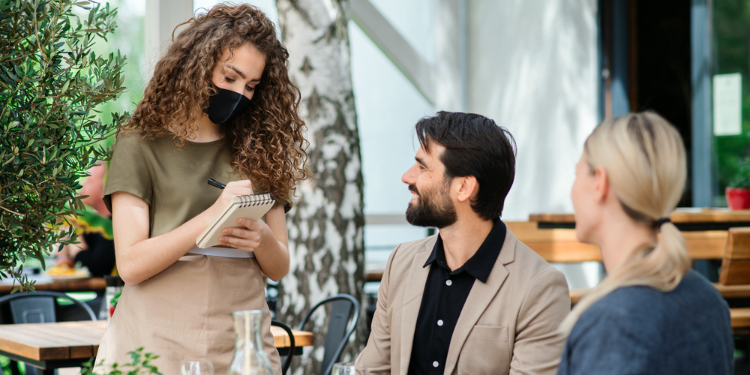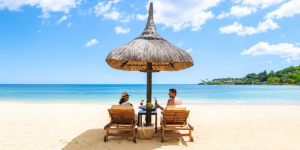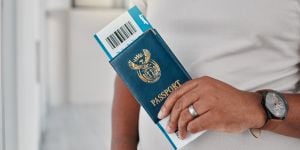
Although the Omicron variant is still strongly present, particularly in Europe, and a "BA.2" sub-variant is spreading like wildfire, many countries are gradually shifting to a new normal by lifting their restrictions in an attempt to revive their economies. In Denmark and England, there are almost no restrictions, while in Quebec and France, many of them no longer apply. However, scientists doubt whether now is the right time to drop the mask obligation. What are these countries strategies to fight Covid in 2022?
Canada
Faced with "freedom movements", some Canadian provinces are being compelled to ease their health restrictions. The fury of some truck drivers due to the vaccine requirement for crossing the American border is at the origin of the protest movement. The movement expanded, paralyzed Ottawa and spread to other provinces. According to international media, less than half of the vaccinated people understand this fury. In their opinion, it is more than discontent; it is a revolution. The movement created panic in many regions. Still, Saskatchewan and Alberta are not ready to abort the vaccination pass.
Quebec
On February 8, Quebec proposed a calendar for the end of restrictions. Prime Minister François Legault believes that people will have to learn to live with the virus. Since February 12, there is no limit on the number of people gathering in private residences. However, a maximum of 10 people is recommended (compared to 4 previously). The same applies to restaurants. Besides, from now on, people with a vaccination pass are allowed to visit private residences for the elderly and long-term care accommodation centres.
Gyms and spas reopened at 50% capacity from February 14. Outdoor events can accommodate 5,000 people (compared to 1,000 currently). All businesses will be able to operate at 100% capacity from February 21. From the 28th, tournaments and competitions will be allowed. Remote working will no longer be compulsory but remains recommended. There won't be any limits on the number of people attending places of worship and performance halls (with some exceptions). Bars and casinos are reopening at 50% of their capacity, and dancing and karaoke are allowed once again in bars and restaurants from March 14. However, wearing masks, the vaccination pass, and social distancing are maintained.
France
France basically returned to normalcy on February 2, with the end of the mask obligation outdoors. There are no longer limits on stadiums and other cultural places receiving a seated public. Remote working is no longer mandatory but is still recommended. Nightclubs closed since December 10 are reopening on February 16, and standing concerts are once again authorized. Consumption is allowed at bar counters, stadiums, transport, and cinemas. Still, some believe that the lifting of restrictions was a hasty decision. In fact, the number of contaminations is still very high in France. On average, more than 220,000 cases are recorded per day, not to mention the arrival of the Omicron sub-variant, "BA.2". Others believe that this is a purely political step. Meanwhile, the protest movements have reached the country.
Denmark
Denmark has lifted all its restrictions since February 1. With more than 80% of fully vaccinated people and 61% having received their booster dose, the country believes it is immune from the Omicron variant, even if the BA.2 sub-variant seems more contagious. "We have an extremely high number of adults with three doses; that is our secret," says Lone Simonsen, an epidemiologist and professor at Roskilde University near Copenhagen. Most Danes support the government's position. With the end of the health pass and restrictions on bars, restaurants, and other leisure venues, the end of quarantine for contact cases, and the reopening of nightclubs, the population is keen for a return to normalcy. On the other hand, the mask and the health pass are still recommended for any visit to the hospital. The National Health Agency also recommends self-isolation for four days for anyone who is Covid-positive. However, restrictions still apply to unvaccinated travellers.
Israel
Israel, one of the first countries to have introduced the health pass, adopted a new strategy. It was also one of the first countries to start its booster vaccine campaign. Israel is determined to return to normalcy despite a new peak in January. It all began last winter with the border reopening. Quarantine for positive Covid-19 cases has been reduced from 7 to 5 days. PCR tests are reserved for frail people and those aged over 60 – the latter can also take their 4th dose of vaccine. According to Prime Minister Naftali Bennet, the way out of the crisis rests on three main pillars: reviving the economy as broadly as possible and to protect the most vulnerable and children.
Spain
Catalonia has lifted its health pass requirement in restaurants, bars and gyms on January 28. And there are no longer limits on private gatherings (10 people previously) and restaurants. Currently, Catalonia's hospitals are not saturated despite the presence of the Omicron variant. But elsewhere in Spain, restrictions still apply. On January 10, Prime Minister Pedro Sanchez spoke on Cadena Ser radio about his desire to "no longer consider the coronavirus as a pandemic but an endemic disease". The minister is considering a strategy similar to that applied for seasonal flu, including reinforced surveillance of fragile people, alerts made by hospitals and referring doctors, etc.
United States
For Anthony Fauci, adviser to the White House, the population now has to accept living with Covid-19. He explained the government's new position on January 11, amid the Omicron wave (with more than 600,000 cases being recorded per day). While figures have dropped to some 220,000 cases per day, the government still encourages vaccination and barrier gestures. Moreover, the isolation period for asymptomatic Covid cases has been reduced from 10 to 5 days since December 28. As of December 31, travellers from South Africa, Botswana, Namibia, Malawi, Zimbabwe, Mozambique, Lesotho and Eswatini are allowed into the United States.
South Africa
In South Africa, too, health restrictions are being lifted gradually. There has been no curfew since December 30 (until then, it applied from midnight to 4 a.m.). Licensed establishments can again sell alcohol after 11 p.m. But there are still limits on gatherings. Wearing a mask outdoors remains compulsory, and social distancing is recommended.
UK
The UK slowly began its return to normalcy on January 27 by repealing most health restrictions. Unlike other countries, England was already one of the countries with the least restrictive measures. Since January 27, the mask is no longer mandatory in public places. The vaccination pass is no longer mandatory to participate in public events. "As the Covid becomes endemic, legal obligations can be replaced with advice and recommendations", explained Boris Johnson on January 19, during a press conference. But Sadiq Khan, the mayor of London, believes it was a hasty step. He maintains the wearing of the mask compulsory in public transport.
Netherlands
The Netherlands was one of the countries with the strictest anti-Covid measures, but it gradually shifted to the new normal. Isolation measures introduced before Christmas ended on January 26. Bars, restaurants and cafes can stay open until 10 p.m., but not at 100% capacity. The mask can be removed when consumers are seated at a table but remains compulsory when moving across the restaurant, café or bar. The health pass also remains mandatory. Cultural venues (museums, theatres, cinemas, etc.) have reopened, but nightclubs remain closed. Indoor events with less than 1,250 people are once again permitted. The easing of measures continues, despite a new wave in mid-January. Non-essential businesses have reopened, but under strict conditions, and only until 5 p.m.
"The pandemic is not over, but we are in the unique position of being able to take control, and we should not waste this opportunity," said Hans Kluge, World Health Organization Regional Director for Europe ( WHO), during an online press conference on February 3. He believes that the world must consider the future with Covid-19 and its variants which “will inevitably appear”. States will have to adapt their measures to the new outbreaks without disrupting normalcy. For Hans Kluge, vaccination remains the best weapon to fight the virus, along with barrier gestures. Matshidiso Moeti, WHO Regional Director for Africa, calls for "increasing the vaccination rate sixfold" in Africa.
The challenge for 2022 is to increase vaccination and booster dose campaigns and ensure that barrier gestures are respected. Experts believe that these are the conditions for a true return to normalcy in the long run.



















